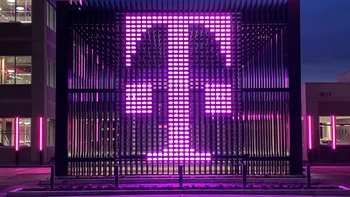AT&T may choose to sit out of FCC auction if spectrum rules impose limits

And just like that, the second largest carrier in the US is making it known that if it is limited in how it can bid in the FCC spectrum auction next year, it might just leave its wallet at home.
FCC Chairman Tom Wheeler is proposing that limits be put in place that, in theory, would give smaller carriers a chance to bid on spectrum in a given market without impacting revenue. The proposal will be voted on next month by all the commissioners.
The rules might set aside as much as 30MHz of spectrum, nearly half, after bidding reaches a yet-to-be-determined threshold in a given market. Once that threshold is reached, then only companies with less than one-third of the spectrum in that market would be allowed to bid on the spectrum set-aside. The bidding will be on blocks of paired 5MHz spectrum.
In more rural markets, such rules would impose limits on the very carriers that might be backing these rules, like US Cellular, who has a wide rural foot print, but is also an incumbent carrier in several mid-western larger markets. By setting aside 30MHz, it arguably leaves enough left over for only one carrier to be able to acquire a block of spectrum large enough to deploy carrier aggregated LTE (LTE-Advanced).
In a filing to the FCC today, AT&T stated that restrictions would not allow the carrier to bid in markets that comprise as much as 70% of the US population. AT&T Vice-president of federal regulatory, Joan March wrote, “If the restrictions as proposed are adopted, AT&T will need to seriously consider whether its capital and resources are directed toward other spectrum opportunities that will better enable AT&T to continue to support high-quality LTE network deployments to serve its customers.”
source: Reuters
FCC Chairman Tom Wheeler is proposing that limits be put in place that, in theory, would give smaller carriers a chance to bid on spectrum in a given market without impacting revenue. The proposal will be voted on next month by all the commissioners.
In a filing to the FCC today, AT&T stated that restrictions would not allow the carrier to bid in markets that comprise as much as 70% of the US population. AT&T Vice-president of federal regulatory, Joan March wrote, “If the restrictions as proposed are adopted, AT&T will need to seriously consider whether its capital and resources are directed toward other spectrum opportunities that will better enable AT&T to continue to support high-quality LTE network deployments to serve its customers.”
source: Reuters
Follow us on Google News













Things that are NOT allowed:
To help keep our community safe and free from spam, we apply temporary limits to newly created accounts: